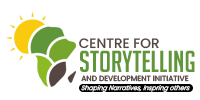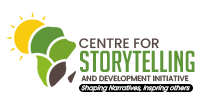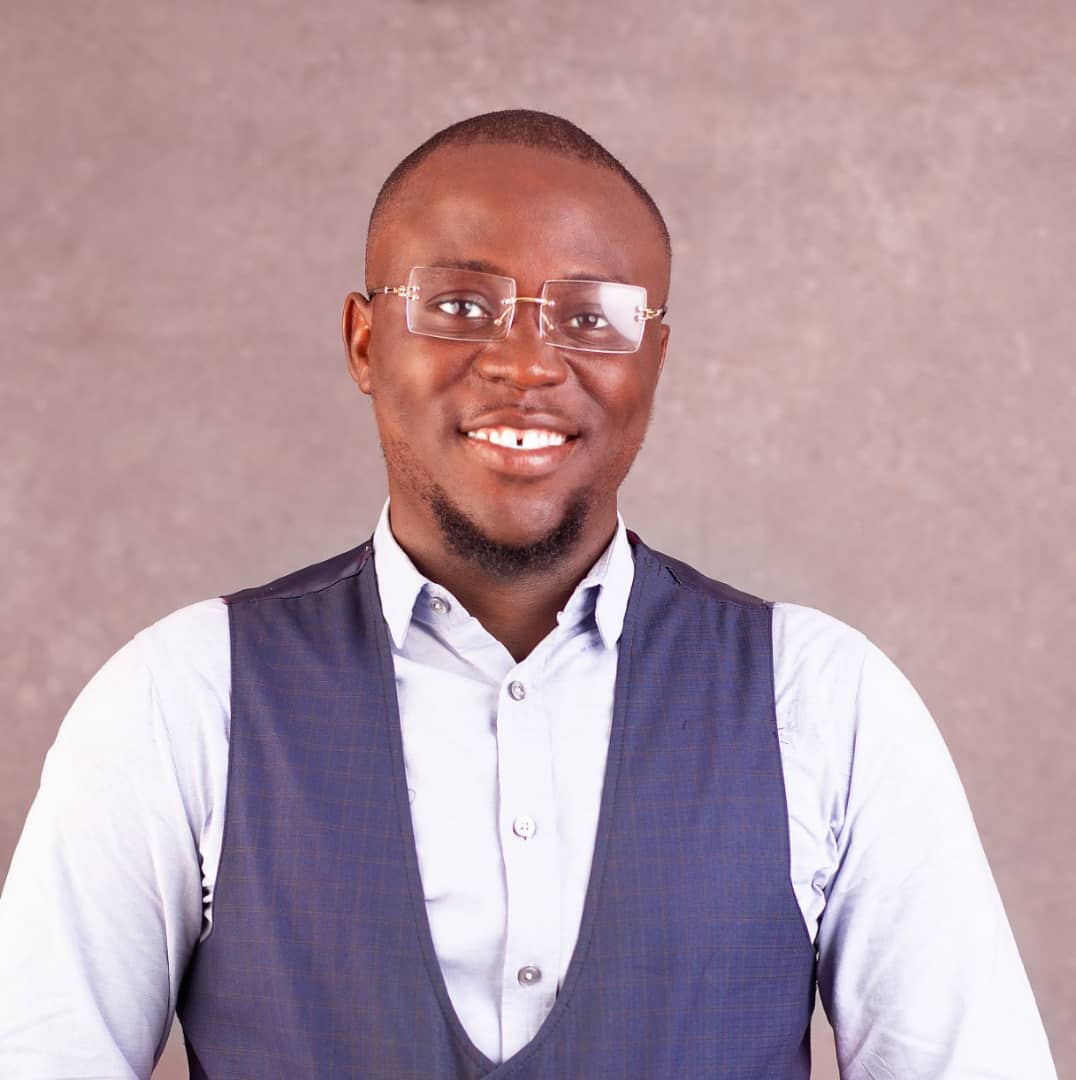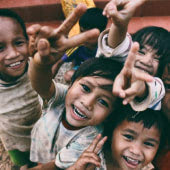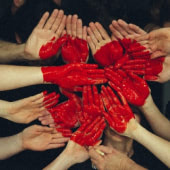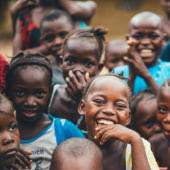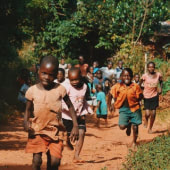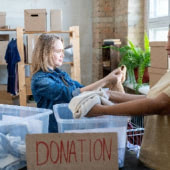Saheed Ibrahim receiving certificates from the US Department of State and Maxwell School of Citizenship and Public Affairs, Syracuse University, New York State after completing the Mandela Washington Fellowship in 2023
By Saheed Ibrahim
“I always pity local journalists. If I were you and working for a community newspaper, I do not think I would be able to rise to the point of being selected for the Mandela Washington Fellowship.” An award-winning journalist and 2023 MWF Fellow, Dahiru Lawal, said as we departed Washington Dulles International Airport after completing the Fellowship in the United States of America.
How did I get on the Fellowship as a journalist working for a community newspaper in Ondo State?
I remember in 2018, during the six-month industrial strike embarked on by the Academic Staff Union of Universities (ASUU), I discussed with one of the sub-editors working at Owena Press Limited (OPL), Rev. David Akinnadewo, my desire to volunteer and intern in his organisation. Rev. Akinnadewo and I were on a master’s programme at the University of Ibadan then. I also told my guardian, Mr Oluwateru, that I would also like to volunteer in his office, Radio Nigeria Positive 102.5 Akure. I got accepted to work with the wonderful people in the stations’ newsrooms.
I started working thrice a week for each of the two stations. I rested on Saturdays. I didn’t do this because I love working like a horse but needed to learn, grow and have relevant job experiences, which I did not have enough while in school. I later freelanced for DailyWatch Nigeria as a Senior Correspondent. It was a remote job, so my other engagements were not affected.

Saheed training interns at Owena Press Limited
One thing I realised after my university days was how important it is for university students to have at least a year of job experience, as every employer kept demanding job experience before I was employed. Age was not on my side. I had to learn as much as I could to cover the professional experience deficit in my CV.
At Owena Press Limited, I met some students who were on industrial training. I did not think twice before voluntarily taking up their training, not because I would be paid but because guiding and mentoring them was essential. They must realise how important the training is to their future. They must not realise late like me, only if they are ready to shape their future before it comes. “Intern training intern”, I used to smile when I silently called myself that. Only OPL staff knew I was a volunteer. People outside the company thought I was a full-time staff, seeing my stories.
After completing my master’s programme in 2019, I returned to OPL as a freelancer. I was detailed to travel to Ayetoro community in Ilaje Local Government Area of Ondo State after a terrible sea incursion towards the end of the year. That daring voyage to the riverine community birthed a new passion in me. My experience in this community made me realise how I could use the media to give voice to the voiceless. I became a social good advocate, focusing on underserved communities and unreported issues.
I have also learnt so much about development communication as an undergraduate and, more significantly, from a foremost development communication scholar at the University of Ibadan, Prof. Ayo Ojebode, before he left the Premier University.
I realised I could go beyond storytelling. I wrote extensively on Ayetoro and the plights of the “Happy City” people. I also did some reports on the plights of the residents of Ago-Ireti, a settlement of people affected by leprosy. Other extensive reports cover drug use and abuse, plights of an average Nigerian and other human angle stories.
In 2020, the Coronavirus pandemic broke out, and it was a time to run around with the State task force assigned to ensure compliance with COVID-19 protocols, consult experts and torch-lighting people’s daily experiences as they grappled with the realities occasioned by the pandemic.
There was a time I was detailed to investigate how people gain entrance into Ondo State despite restrictions on interstate travelling. I discovered how people sleep inside cement trailers to avoid security agents at the border. Okada riders also aided travellers in crossing the Osun-Ondo border at Owena town.

Saheed, with members of Young African Leaders Initiative (YALI) Network Ondo Hub, campaigning against bullying in schools
I covered every session of the Judicial Panel of Inquiry on EndSARS matters in the state from 2020 to 2021. In April 2021, I was given a letter of full-time employment at OPL, a charge to do more. During the Nigeria Union of Journalists Ondo State Chapter Professional Award night in the same year, I won the Grassroots Reporter of the Year with my story on ‘Agonies of Women Widowed by EndSARS Protest’. After the award ceremony, I visited one of my investigation spots, Cathedral Junction, where adults and young girls commercialise sex.
The investigation earned me the Investigative and Best Reporter (print category) of the 2022 editions of the NUJ professional awards. Juliet Buna of OSRC Media Group won in the TV category, while Olufisoye Adenitan of Radio Nigeria won in the radio category. Our stories revolve around underserved communities and underreported issues.
One exciting thing about the Ondo NUJ 2022 Professional Award Night is that those of us that won the Journalist of the Year Award in the three categories have won different prestigious Fellowships shortly after.

Juliet
I was selected as a Fellow of the Mandela Washington Fellowship in March and a Fellow of the Communicating Evidence for SRHR Policy and Advocacy Action (C4SPAA) Fellowship in June. Juliet Buna was selected for African Women in Media (AWiM), Reporting Violence Against Women and Girl Child Fellowship 2023, AWiM Women in Politics Fellowship, Winner, Best Pitch AWiM Reporting Violence against Women and Girls, 2023 and C4SPAA Fellowship. Beyond her daily news reportage, Juliet uses the media to promote the rights of women and girls.

Olufisoye
Olufisoye was selected for the Report Women – Female Reporters Leadership Programme by the Wole Soyinka Centre for Investigative Journalism, Dataphyte Gender Mainstreaming Fellowship and AWiM /Luminate Young Women in Politics Programme, among other achievements. She runs a foundation that, among other functions, caters for women inclusion, education for girls and a safe space for persons with disability.
The three of us are currently Fellows of DUBAWA Kwame Karikari Fact-Checking Fellowship for Anglophone West African Journalists.

DUBAWA 2024 Kwame Karikari Fact-Checking Fellows
Like I jokingly say in the newsroom, all these ‘he said, he said and concluded’ stories may not take us anywhere. We need to find relevance and go beyond mundane storytelling. I reviewed the profiles of some award-winning journalists in Nigeria and their works. There is usually a pattern: while they go about daily news reporting, they align their significant works with specific courses and/or issues.
For example, Zainab Bala is a broadcast journalist and a documentary filmmaker with national and international awards and fellowships to her impressive career. She prides herself as a human rights and social justice journalist. She is the founder of The Scoop Storytelling Initiative, dedicated to human rights, holding power to account and amplifying the voices of marginalised communities seeking to make their stories seen and heard.
As I do advise my colleagues, both young and old, you can have a focus and make yourself relevant in specific ‘beats’. Rather than only dishing out stories from press releases, conferences and interviews, going deep into issues will give more credibility to our outputs.
Ironically, storytellers do not know how to tell their stories. While you advocate for others, you owe yourself premium advocacy. Why do beautiful jobs without promoting them? As I have learnt during my undergraduate days, the formula for Public Relations is “Good Job + Adequate Publicity”. No one will do it for you when you do not speak about yourself. It is not pride; it is your Personal Social Responsibility (PSR).
Saheed and his mentees volunteering for YALI Ondo. Then-YALI Deputy Coordinator, Mr Ibukun (third from right) poses with them
Your stories, articles, documentaries, films and other media outputs should not end on your organisation’s platforms. Do you share them on personal social media? Do you share insights about them? Do you apply for Fellowships that align with your interests?
How many young people have you intentionally mentored and trained? There are thousands of media students and graduates in Nigeria. There are also many young media journalists. Mentoring these young professionals will not take away your years of experience or ‘kill your shine’ as we do say in this part of the world. It is a way of sowing good seeds into the media vineyard.
I train an average of 50 industrial trainees yearly in storytelling and help them hone their communication and leadership skills. I introduce them to personal developmental programmes organised by the Young African Leaders Initiative (YALI) Ondo Network, which I am part of. I advocate education rights, equity, women rights and investment, youth development, inclusion, accessibility, SRHR and social good. Beyond the training, I mentor young people that are committed to personal and career development. Combining journalism with advocacy has been a strength rather than a challenge for me.
This may be why I was considered worthy of the Mandela Washington Fellowship. Who is the big gainer? I! My focus project for the Fellowship is to train more young people in storytelling and change misconceptions about Africa in the media. The dream sounded crazy at first because someone had one time said, ‘Africa is a big PR challenge’. I beg to differ. To the glory of God, that dream is manifesting as the Centre for Storytelling and Development has been born.

Saheed speaking as a C4SPAA fellow at AHEAD’s headquarter, Ile-Ife in 2023
Skill up! The world is changing. AI is revolutionising every sector, and the media space is not spared. Content writing, storytelling, filmmaking, audio transcription, video editing and other aspects of media productions are changing. The roles of sub-editors are gradually being replaced with technology. With Grammarly, ChatGPT and other tools, you can refine your script. No doubt, human touch cannot be totally replaced by machines, but we must not ignore the realities before us.
We are in the era of convergence, but can your skills match the ever-dynamic digital media space? Every media professional must answer this question. Organisations are going digital or integrating digital technologies into their operations, except those that want to remain in the John Payne Jackson era. New journalism genres are emerging, and new modern skills are in demand. We need to learn, unlearn and relearn. There is no shame in asking the digital natives for help. Get professional certificates, attend professional training, learn digital tools, get additional qualifications and keep evolving if you want to remain relevant.
Media organisations now employ less. According to the US Bureau of Statistics, American newspapers employed nearly half a million people about 30 years ago, but by 2016, the figure stood at 183,000. Within the same period, employment in internet publishing rose from 30,000 to about 200,000. We know what is currently going on in our various newsrooms.
Beyond churning those many paragraphs of news stories, 30-minute documentaries, special reports, press statements and other media outputs, consider personal, human and social development. Learn, grow, network, mentor others and tell your stories.
